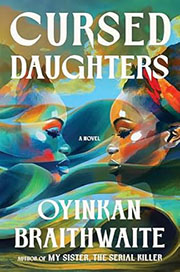
| Mon
Book Info
Subscribe
| |||
Dear Reader, There are rooms in my mind, and every now and then they need a good house cleaning. Things get dusty up there. Junk gets piled high and I run out of places to store new experiences. And I think that's what my problem is right now. I've been trying to learn how to do something new. But there doesn't seem to be any "room at the inn," and I keep reverting back to my old ways. So I grabbed my broom and dust cloth the other day and did some tidying up. Dusting and rearranging things made me feel better, but it didn't really free up any extra space. So I started opening doors and visiting some rooms that I hadn't spent any time in for quite a while. I was a little nervous when I first turned the door handle and peeked inside, because I stumbled on experiences and feelings that I'd forgotten about long ago. Some of them made me feel good, and I couldn't understand why I'd packed them up and put them away. But other things weren't the least bit helpful to me anymore. In fact, thinking about them again reminded me of just how destructive they had been. I spent a lot of time rummaging around the rooms in my mind. I cried, I laughed, and I let go of some things that I just couldn't afford to take with me on the journey anymore. Thanks for reading with me. It's so good to read with friends. Suzanne Beecher P. S. This week we're giving away 10 copies of the book Cursed Daughters by Oyinkan Braithwaite. Click here to enter for your chance to win. | |||
Cursed Daughters: A Novel 'More Novels to Note' Author Panel Featuring Oyinkan Braithwaite
| |||
|
PROLOGUE She was a mermaid—queen of song and sea, goddess of the gillbearing vertebrates, mistress of the hearts of men. Only she quickly realised that in these waters, the one creature that could flourish was Mami Wata; and Mami Wata was as far from the fabled mermaid as a creature could be. There was no shimmering fin, no haunting singing voice, no glossy skin—instead a mouth crowded with dagger teeth, hands that were deformed and decaying, features that were hard to look at but impossible to turn away from. Monife had had little interest in Mami Wata, but in the end, when they found her body, she would be likened to the eerie creature. The water was cold. And terrifying in the darkness. She was alone because Elegushi beach was not a place you went to at night. In the blackness, the beach had a completely different atmosphere; without the DJ blasting music or kids kicking up sand, it was joyless. Even in the daytime, most Lagosians stayed well away from the water; they were always surprised and a little awed when Monife wandered into the frothy waves in some skimpy bikini with her arms held wide open and her braids flying wildly behind her. Strangers would call her back, afraid for her safety, afraid to be witness to some tragedy they imagined was about to take place. But she had always, always returned to shore. The tragedy was here, now, with her wading into the cold, thrashing waters. No. The tragedy had already happened, and this was simply the inevitable consequence. She thought of her mother, but the thought did not soften her resolve. She had left a brief note—she hadn't had the words. Besides, they would know why; and if they were unsure, her cousin could enlighten them. She was doing her very best to think of anything but Golden Boy. She didn't want her last thoughts to be of him. She had already surrendered herself to him in her life; she didn't want to surrender to him at the end also. But she was neck-deep now and she hoped his heart would shatter into a million glittering, self-pitying pieces. He would swallow his pain whole, and perhaps he would choke on it. It was impossible to tell where her tears fell as the waves washed her clean. She was being swept further and further away from the shore, from her home, from her life. She was terrified, but she reminded herself that the worst had already happened, she only had to give in. PART ONE "Gone too soon," the pastor had said, and she thought it the understatement of the century. Gone too fucking soon. The weather was all wrong. It was rainy season; at least it was supposed to be. She would have welcomed dark clouds, thunder, a perfect storm. Instead, the sun was relentlessly bright and the sky was crystal clear. She fanned herself with her hand; it did nothing to relieve her discomfort. Off in the distance, she could hear the beat of a gángan, the trumpets and the joyous chorus that accompanied it—the soundtrack was all wrong, too. Someone grabbed her hand and a small moraine of soil was poured on to Ebun's palm. She stared at it, momentarily forgetting what she was supposed to do . . . oh yes—sprinkle it on the pine prison that housed the body of her cousin. She released soil over the coffin and watched it scatter. Beside her, her mother wailed. It was done. It was done. And Tolu was already walking away. She watched him step on grave and grass as if there were no difference between them. He had barely spoken to her mother and herself, and when he did, it was "yes," "no," "okay." Her mother had ascribed the behaviour to grief, but Ebun knew it was condemnation. The drums were getting louder, the singing more frenzied. She was starting to believe the 'gbin gbin gbe' of the gángan was taking place within the walls of her skull, but then a gathering of people paraded by, led by musicians. They were straight-backed, dressed in Ankara aso ebi, chatting, some even laughing and skipping over graves as they exited Ikoyi Cemetery; oblivious to the wretchedness a stone's throw from them. Whoever it was the jubilating group had buried had likely reached their twilight years, probably had children and grandchildren and possibly died in their sleep. Not so Monife. She was, is . . . was only twenty-five. Ebun looked around and saw Mo's mourners were beginning to melt away. They mumbled goodbye to one another; some exchanged hugs. Mo's father was soaking in the sympathy and accepting condolences as if they were his due. She stayed out of his way, lest she speak her mind. Tolu had had a similar idea—throughout his sister's funeral, he'd stayed ten feet away from his father at all times. She was tired and her feet hurt, so she left the cemetery as quickly as her distended belly would allow. When she got to the car, she realised the keys were with her mother. She was forced to wait under a sun that was dry-eyed and unfeeling, the sweat running down her forehead, into her eyes, down her neck and her chest. She wiped it with her hand, but it kept on coming. Her discomfort must have been shared by the baby, because the kicks came hard and fast. She was worried she would faint, so she carefully sat on the ground, under the shade of a palm tree. How quickly life changed. The note, searching for Mo, receiving word that a body had been found, burying her . . . it had all transpired in the course of ten days; but it had felt like a millennium. She waited for the tears to come, as she had done since she got the news of Mo's death, if only to relieve her of the lump in her throat and chest; but there truly was no peace for the wicked. "Ebun. Ebun." She looked up. Her mother was standing over her, eyes raw from crying. "Are you okay?" What a question. She struggled to rise from the ground, so her mother helped her up. They got into the Beetle. She hoped they would drive in silence, but her mother wanted to talk. "It was a nice service, wasn't it?" "Mmm." "I think Monife would have felt loved." Love was what had gotten Monife buried six feet under. But Ebun chose to keep her true thoughts to herself. "Yes, she would have," she replied. PART TWO Her mother dropped the car keys into a glass bowl on the console table in the hallway, among the kobo coins, lint and someone's bangles. The keys clinked against the glass and the ensuing echo tricked her into thinking that the house was empty. But alas, she soon made out the gentle murmuring of women talking quietly, as if intent on not waking any ghosts. She could guess why they were here—Aunty Bunmi hadn't attended the funeral because it was considered taboo for a mother to bury her child; and since it would have been unwise to leave a grieving mother alone, a few family members must stay with her. Ebun understood all that, but she couldn't bear the thought of seeing any more people, so she began to head for the stairs. "Ebun," her mother said. "You have to go and greet your aunt." She was about to make an excuse, when she noticed something was off. On the wall to the right of the console she was looking at five framed photographs, where there used to be eight. The missing photos had all featured Mo—Mo holding her university certificate, Mo beaming at the camera with the shadow of the beach in the background, Mo with one arm around Ebun's shoulders and the other around Tolu, pulling them tightly to her. She took a couple of steps back and scanned the wall on the left side of the console table. It was missing the picture of Mo, Tolu and their mother awkwardly posed, and the picture with Mo in her role as bridesmaid. "What's happened to Mo's pictures?" she asked, as calmly as she could. Her mother looked up at the wall and sighed, scratching her forehead with a long nail. "I . . . If this is what your aunt needs, maybe it's for the best . . ." Ebun could tell her mother had not been a part of the pictureremoving committee, but Kemi's words only fuelled her anger. "Ebun, where are you going?" (continued on Tuesday) Love this book? Share your review with the Publisher
| |||
| Mon Book Info | |||

